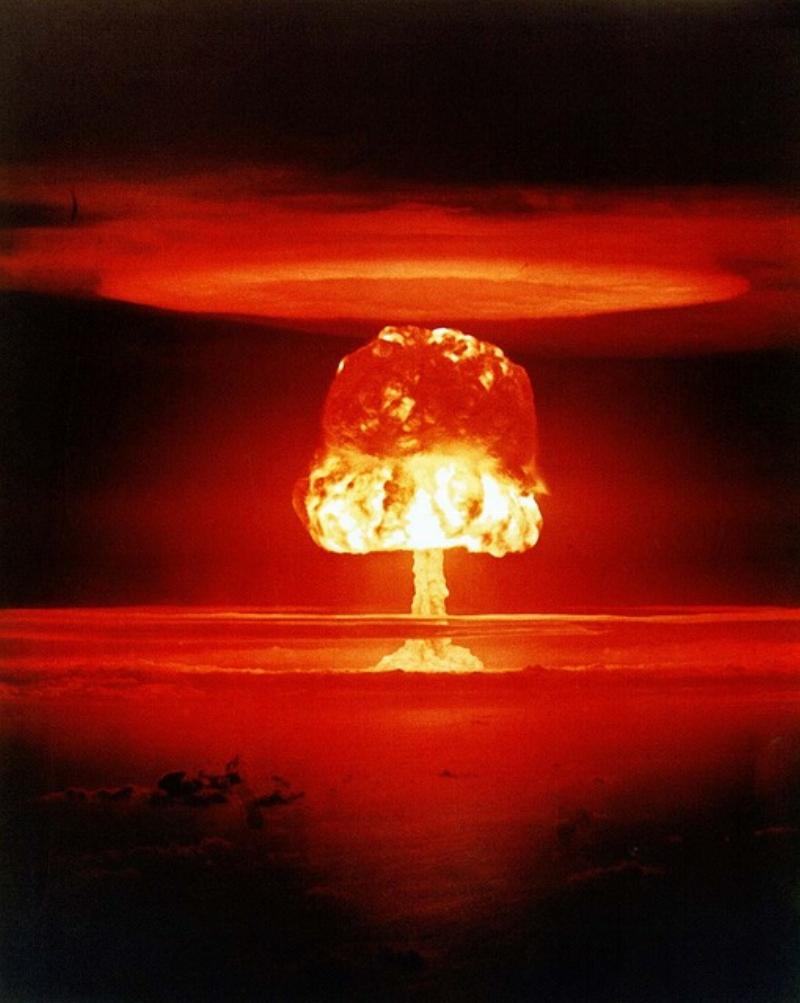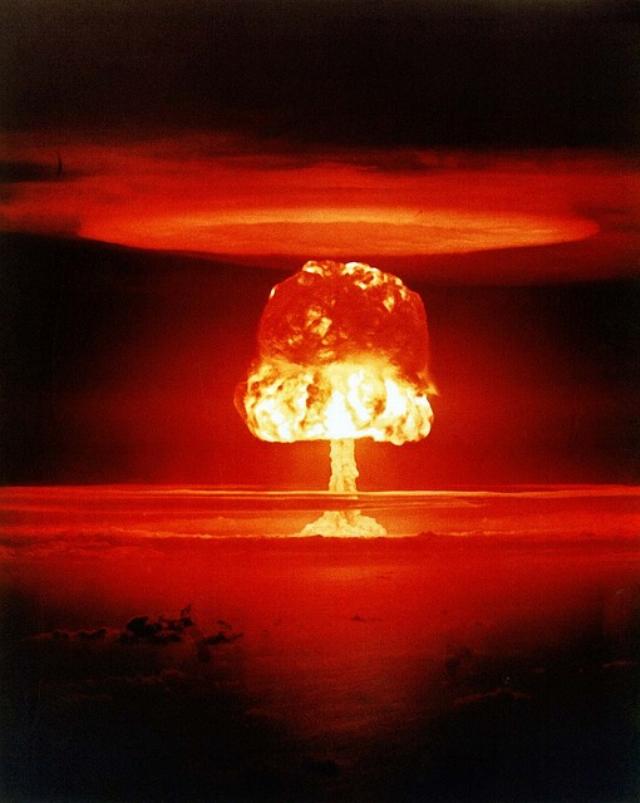


The question that should be on the mind of every free world leader today is how close is Iran to having a nuclear weapon? The free world was at a similar point in asking this question of Germany during World War II. Just like today, the answer to the question required turning to a Jew for help. In the case of Germany, it was a retired baseball player who risked his life to get it—a catcher by the name of Morris “Moe” Berg (1902–1972).
As the U.S. declared war in 1941 to join its allies against Japan and Germany, it knew the Nazis were working on the development of a “super weapon”—the atomic bomb—but did not know how far along it was in its development. Having retired from baseball in 1939 and joined the OSS (the precursor to the CIA) in 1943, the call went out the next year for Berg to help the U.S. make that determination.
Berg was dubbed the “brainiest man in baseball,” having mastered six languages in his earlier years. He was brilliant enough as well to pull off the masquerade of a Swiss physics student attending a lecture being given in Zurich by “the most dangerous possible German in the field” of psychics—Werner Heisenberg who was director of the Nazi nuclear program.
Attending the lecture on December 18, 1944, 42-year old Berg—who spoke some German—had to make a critical determination. Based on what Heisenberg disclosed during the lecture, Berg had to assess whether Berlin was close to producing an atomic bomb. If it were, Berg—who carried a .45 caliber pistol with him along with a cyanide capsule—was to assassinate the German physicist and then swallow the pill.
But Berg determined Berlin was nowhere close to having an atomic bomb. And this was despite not quite understanding all of what the German lecturer had said. Perhaps having acquired a sense for “when a runner was going to steal, Berg (felt) even though Heisenberg was trying to hide it,” that he “was despondent because Germany didn’t have the bomb and was going to lose the war.”
Only after the war did we learn that Germany had actually abandoned its atomic bomb program in July 1942, never having achieved a successful chain reaction or method for enriching uranium.
Berg returned to the U.S. where sadly, after the war, he spent the rest of his life as a wanderer who lived off the generosity of others. His love of baseball was demonstrated at his life’s end as the National Baseball of Fame reports his last words were “How did the Mets do today?”
We were blessed to have had a courageous Jew like Berg in our intelligence lineup 81 years ago to assess Germany’s capability to produce an atomic bomb. If anyone has a similar capability today to assess Iran’s capability to produce a nuclear weapon, it is Israel—which is the most endangered country on Earth should Tehran reach that point. Imagine what a different outcome there would have been in World War II had Germany developed its super weapon before we did.
As Iran is allowed to continue its nuclear weapons program unabated, we are learning more about why action needs to be taken quickly to stop it. Earlier this month, satellite imagery revealed a previously undiscovered nuclear weapons facility in Semnan Province, located far away from previously known sites. Covering more than 2,500 acres, the facility has been in operation for more than a decade, disguised as a chemical production company.
Interestingly, while Iran long ago assured us it only sought the peaceful use of nuclear technology, this facility is believed to involve the extraction of tritium—which has no peaceful or commercial use. If it were ever in doubt before, this is another clear indicator the mullahs are not to be trusted.
A fifth round of U.S.-Iran nuclear talks in Rome concluded May 23 with the reported progress depending upon to whom one queries. While the U.S. claimed the talks were “constructive” but “there is still work to be done,” Iran was more skeptical, expressing doubt about the outcome and that it was actively preparing for its Plan B. Iran has a long history of both dragging out negotiations for its benefit—such as to avoid sanctions—and then violating the agreements it makes.
If Iran—which is every bit as determined to wipe the Jews off the planet as was Adolf Hiter—is allowed to develop nuclear weapons, we will see that weapon used. As Tehran’s late Supreme Leader Ruhollah Khomeini explained, Islamists fear not nuclear retaliation: “We do not worship Iran, we worship Allah. For patriotism is another name for paganism. I say let this land [Iran] burn. I say let Iran go up in smoke, provided Islam emerges triumphant in the rest of the world!”
Israel fully understands this callous attitude and has to take action in the very near future, only leaving the question of whether she will have to act alone. As U.S.-Iran nuclear talks drag on to allow Tehran to edge closer to its ultimate goal, “Israeli officials have shifted from quiet preparation to barely concealed readiness,” suggesting imminent action is on the front burner.
Often forgotten by the West is how their combined indecisiveness enabled Iraq in 1981 and Syria in 2007 to initiate construction of nuclear reactors—until Israel intervened to stop both programs dead in their tracks. It was Israel that relieved the free nations of the world of the responsibility of addressing the issue later and at a much more challenging time.

Image: Free image, Pixabay license.
